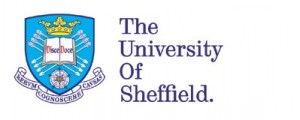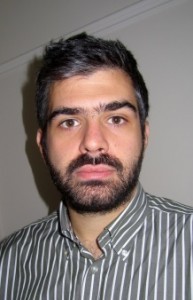 The University of Sheffield is a leading global university and one of the largest in the UK with over 25,000 students from over 120 countries. Its research in the arts and humanities, engineering, medicine, science and social sciences changes lives for the better and advances our understanding of what it means to be human. The University of Sheffield has a global reputation for teaching and research, ranked 13th in the UK and 38th in Europe in the 2012-13 Times Higher Education World University Rankings, and 66th in the world in the 2012 QS World University Rankings; it was the Times Higher Education University of the Year in 2011. Sheffield is home to 24,000 of the brightest students in the world. Twenty-four per cent of them come from outside the UK. Our graduates and former staff include five Nobel Prize winners, an Olympic gold medallist and Britain’s first female astronaut. The University of Sheffield has a long-standing tradition of collaborative research with groups in the UK and overseas and has much experience in managing large European research projects. The University of Sheffield has 240 live projects in FP7 with a further 65 in negotiation. These projects span all funding instruments and include many projects where the University of Sheffield is the coordinator.
The University of Sheffield is a leading global university and one of the largest in the UK with over 25,000 students from over 120 countries. Its research in the arts and humanities, engineering, medicine, science and social sciences changes lives for the better and advances our understanding of what it means to be human. The University of Sheffield has a global reputation for teaching and research, ranked 13th in the UK and 38th in Europe in the 2012-13 Times Higher Education World University Rankings, and 66th in the world in the 2012 QS World University Rankings; it was the Times Higher Education University of the Year in 2011. Sheffield is home to 24,000 of the brightest students in the world. Twenty-four per cent of them come from outside the UK. Our graduates and former staff include five Nobel Prize winners, an Olympic gold medallist and Britain’s first female astronaut. The University of Sheffield has a long-standing tradition of collaborative research with groups in the UK and overseas and has much experience in managing large European research projects. The University of Sheffield has 240 live projects in FP7 with a further 65 in negotiation. These projects span all funding instruments and include many projects where the University of Sheffield is the coordinator.
The Faculty of Social Sciences is a large and diverse grouping of thirteen departments, including ‘classical’ social science departments, but also several other major subject areas, some of which are distinctive to Sheffield. Moreover, from October 2014, the Faculty will host the Sheffield Methods Institute, which will operate as a standalone unit alongside other departments in the Faculty. The Institute was launched to enable the delivery of a range of interdisciplinary programmes, including programmes on quantitative methods supported by funding via our successful bid to the Nuffield Foundation/Economic and Social Research Council (ESRC)/Higher Education Funding Council for England (HEFCE) Q-Step programme. This rich and exciting disciplinary mix, encompassing both world-leading academic research and education and also a strong practitioner focus in particular areas, uniquely positions the faculty among Sheffield’s peer institutions.
For the TransSOL project, research work is conducted by the Department of Politics. The Department of Politics is also involved in the FP7 project LIVEWHAT. Members of the Department hold many prestigious research awards such as ERC grants, ESRC Future Research Leaders and Leverhulme Fellowships. The Department of Politics is one of the UK’s most successful centres for teaching and research. This was confirmed in the 2008 Research Assessment Exercise (RAE), when the Department was ranked first equal amongst all politics departments in the UK. Teaching is closely aligned with research interests and staff and postgraduates work closely together to share ideas. The Department has a lively culture of intellectual exchange, particularly in the context of the Department’s four research groups and workshops: Governance and Participation, Political Economy, International Politics and Political Theory and Global Justice.
Team members
Maria  Grasso is the principal investigator for the cross-national survey work-package in TransSOL. Since September 2011, she has been a Lecturer in Politics and Quantitative Methods in the Department of Politics, University of Sheffield where she was coordinator of the Governance and Participation Research Group until 2014. She holds a doctorate from the University of Oxford (2011, Nuffield College) as well as an MSc in Sociology with Distinction (2006) and a BA (Hons) in Philosophy, Politics and Economics (2005). Her MSc and PhD studies were fully funded by the UK Economic and Social Research Council (ESRC). While completing her doctorate, she worked as a Research Fellow on Caught in the Act of Protest: Contextualizing Contestation, a European collaborative project (2009-2011). Dr Grasso has published her research in Electoral Studies, Mobilization, Work, Employment, and Society, among others. She is the principal investigator for the UK of the EU FP7 LIVEWHAT (Living with Hard Times: How Citizens React to Economic Crises and Their Social and Political Consequences) project. Dr Grasso’s main research interests are in political behaviour and social change, and her academic work deals primarily with quantitative research and statistical analysis of cross-national surveys.
Grasso is the principal investigator for the cross-national survey work-package in TransSOL. Since September 2011, she has been a Lecturer in Politics and Quantitative Methods in the Department of Politics, University of Sheffield where she was coordinator of the Governance and Participation Research Group until 2014. She holds a doctorate from the University of Oxford (2011, Nuffield College) as well as an MSc in Sociology with Distinction (2006) and a BA (Hons) in Philosophy, Politics and Economics (2005). Her MSc and PhD studies were fully funded by the UK Economic and Social Research Council (ESRC). While completing her doctorate, she worked as a Research Fellow on Caught in the Act of Protest: Contextualizing Contestation, a European collaborative project (2009-2011). Dr Grasso has published her research in Electoral Studies, Mobilization, Work, Employment, and Society, among others. She is the principal investigator for the UK of the EU FP7 LIVEWHAT (Living with Hard Times: How Citizens React to Economic Crises and Their Social and Political Consequences) project. Dr Grasso’s main research interests are in political behaviour and social change, and her academic work deals primarily with quantitative research and statistical analysis of cross-national surveys.
For up-to-date info, please visit her staff page.
Sotirios  Karampampas is a PhD student at the Department of Politics, University of Sheffield. He holds a BA in Political Science and Public Administration from the University of Athens (2008), and a MA in International Politics and Security Studies with Distinction from the University of Bradford (2009). His doctoral thesis employs a multi-method approach, including protest event analysis, semi-structured interviews and qualitative data analysis, in the study of revolutionary groups in Greece and Italy, and is supervised by Dr Maria Grasso. His main research interests are in political violence and terrorism, social movement theory, and the political effects of the current economic crisis in Europe. Apart from working on his doctoral thesis, he is also a teaching assistant and seminar tutor for international relations and security studies modules at the Department of Politics.
Karampampas is a PhD student at the Department of Politics, University of Sheffield. He holds a BA in Political Science and Public Administration from the University of Athens (2008), and a MA in International Politics and Security Studies with Distinction from the University of Bradford (2009). His doctoral thesis employs a multi-method approach, including protest event analysis, semi-structured interviews and qualitative data analysis, in the study of revolutionary groups in Greece and Italy, and is supervised by Dr Maria Grasso. His main research interests are in political violence and terrorism, social movement theory, and the political effects of the current economic crisis in Europe. Apart from working on his doctoral thesis, he is also a teaching assistant and seminar tutor for international relations and security studies modules at the Department of Politics.
For up-to-date info, please visit his staff page.
